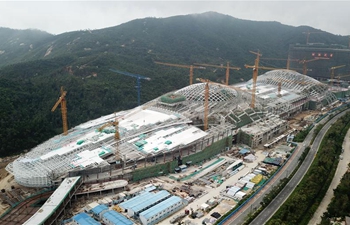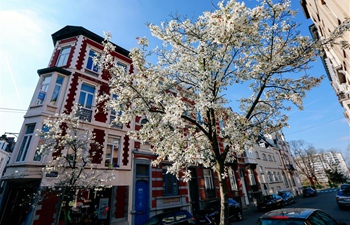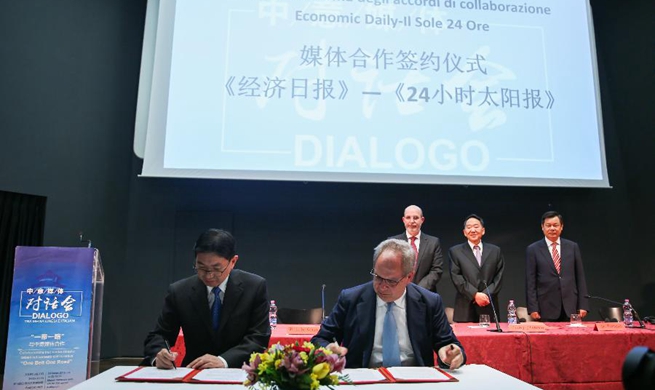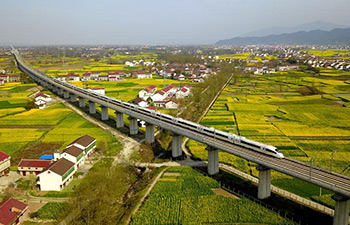BERLIN, March 22 (Xinhua) -- The purchasing managers' index (PMI) for Germany's manufacturing sector fell to 44.7 points from 47.6 points in March, the steepest decline since August 2012, according to the preliminary PMI index published on Friday.
"The result is not a surprise for us because it will be the third time in a row that the PMI has been under 50 points in recent months", Frank Roesch, spokesperson of the German Association for Supply Chain Management, Procurement and Logistics (BME), told Xinhua on Friday.
"We are currently experiencing a normalization of the German Industry but there is no threat of a German recession", Roesch said, adding that the German industry was just returning to normal levels after 10 years of economic boom.
The results are based on the monthly survey of around 500 purchasing managers and managing directors of the German manufacturing industry, provided by BME. The final index will be released in the first week of April.
"Uncertainty towards Brexit and trade conflicts, a slowdown in the car industry and generally softer global demand all continue to weigh heavily" on the performance of the German manufacturing sector, said Phil Smith, Principal Economist at IHS Markit.
The contraction of German manufacturing activity was driven partly by a sharp fall in new export orders, a decline in backlogs of work and a contraction in employment, according to figures in the purchasing managers' index.
Although only marginal, the cuts in staffing numbers were the first decrease in the German factory workforce numbers in three years, which IHS Markit noted was "a stark contrast to the robust rates of job creation seen in previous months".
While the German domestic market remained strong as reflected in wage pressures and robust growth across the services sector of the economy, IHS economic expert Phil Smith questioned whether it would be able to withstand a protracted downturn in manufacturing.
In the fourth quarter of 2018, the German economy stagnated and only just managed to avert a recession and the German Council of Economic Experts recently halved its growth forecasts for Germany's gross domestic product (GDP) to 0.8 percent this year.













